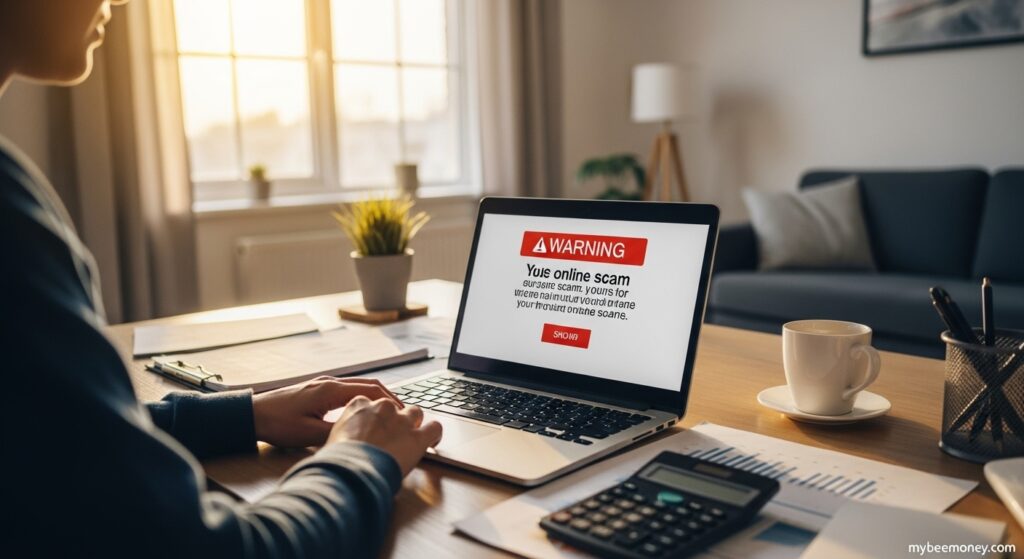
Picture this: you’re finally getting a grip on your paycheck when—bam!—your car breaks down, and you’re stuck with a hefty repair bill. Life loves throwing curveballs, doesn’t it? If you’re a young adult just starting out, these financial emergencies can feel like a punch to the gut, especially when you’re not sure how to handle them.
Don’t worry, though—I’ve got your back! In this post, you’ll learn what a financial emergency really is and how to prepare for it, even on a tight budget. Let’s dive in and build your safety net together!
Defining a Financial Emergency for Beginners
Hey there, let’s break down what a financial emergency really means. If you’re new to managing money, this concept might seem vague or even scary, but don’t worry—I’ve got your back.
Think of a financial emergency as an unexpected situation that demands immediate cash and can’t wait for your next paycheck. It’s not just a tight month; it’s a real curveball.
This section will dive into the nitty-gritty of what counts as a true crisis, common triggers, and how these differ from your everyday bills. Stick with me to get a clear picture!
What Qualifies as a True Financial Crisis?
So, what makes a situation a legit financial crisis? It’s an urgent, unplanned event that threatens your stability and requires money you didn’t budget for.
Think of a sudden medical bill after an accident or losing your job out of the blue. These aren’t just inconveniences—they can derail your life if you’re not prepared.
Common Triggers of Money Emergencies
Let’s talk about what often sparks these money messes. Knowing the usual suspects can help you spot trouble before it hits hard.
Common triggers include unexpected health issues, car repairs, or a natural disaster damaging your home. Even a family member needing urgent help can count.
Here’s a quick list of frequent causes:
- Medical emergencies like surgeries or ER visits.
- Job loss or sudden income drops.
- Major home repairs after floods or storms.
How Emergencies Differ from Regular Expenses
You might wonder, “Isn’t every big bill an emergency?” Nope! There’s a key difference between emergencies and regular expenses.
Regular expenses, like rent or groceries, are predictable—you can plan for them. Emergencies are sudden and often unavoidable, hitting when you least expect.
For example, buying a new phone because yours is outdated isn’t a crisis. But replacing it after it’s stolen? That’s an emergency. See the difference?
Why Financial Emergencies Catch Us Off Guard

Hey, let’s talk about why financial emergencies often hit you like a ton of bricks. It’s not just bad luck; there are real reasons these crises sneak up and knock you off your feet.
Most of us don’t see them coming because life feels predictable—until it isn’t. A sudden expense can spiral into chaos if you’re not ready.
That’s why I’m breaking this down into a few key culprits. Let’s dive into what’s tripping you up and how to spot the warning signs.
Stick with me as we unpack these traps below!
Lack of Awareness and Planning Pitfalls
You might not even realize a financial emergency is looming until it’s too late. Many folks skip creating a safety net because, well, “it won’t happen to me.”
But life’s unpredictable. Without a plan, a car breakdown or medical bill can drain your wallet fast.
Think about it—do you have an emergency fund? If not, you’re rolling the dice on your stability.
Start small, but start now. Even $50 a month can build a buffer over time.
Emotional Stress and Decision Mistakes
When a crisis hits, stress takes over, and your brain scrambles. You might make rash choices—like maxing out a credit card—without thinking long-term.
It’s human nature. Panic clouds judgment, and suddenly you’re deeper in debt than before.
Ever paid a late fee because you forgot a bill in the chaos? That’s emotional overload at play.
Take a breath before acting. A quick pause can save you from costly missteps.
Underestimating Small Financial Risks
Small issues can snowball into disasters if you ignore them. A tiny leak in your budget—like overspending on coffee—adds up.
Before you know it, there’s no cash left when a real emergency strikes. It’s sneaky but real.
Here’s a quick checklist to avoid this trap:
- Track every dollar you spend for a month.
- Cut one unnecessary expense (yes, even streaming!).
- Redirect that money to savings.
Stay sharp—those little risks aren’t so little when they gang up on you.
Building Your Emergency Fund Basics
Hey, let’s talk about setting up your emergency fund—a total game-changer for financial peace. This isn’t just spare change; it’s your safety net when life throws curveballs.
Having a stash for unexpected expenses means you won’t panic over a busted car or sudden medical bill. Stick around as we break down the essentials to get you started.
We’ll cover how much to save, where to keep it, and easy ways to build it up. Let’s dive into the nitty-gritty and make this doable for you.
How Much Should You Save for Safety?
First off, figuring out your savings goal is key. Experts often suggest aiming for 3 to 6 months of living expenses to cover basics like rent and food.
Start small if that feels overwhelming. Even $1,000 can be a solid buffer for minor emergencies while you build up to the bigger goal over time.
Best Places to Store Your Emergency Cash
Where you park your emergency fund matters. You need quick access, so skip risky investments—think high-yield savings accounts or money market accounts instead.
These options earn a bit of interest while keeping your cash safe. Avoid regular checking accounts; you don’t want to accidentally spend your safety net.
Tips to Grow Your Fund Without Stress
Building your fund doesn’t have to be a grind. Here are some stress-free ways to make it happen without feeling broke:
- Automate it: Set up a monthly transfer of even $20 to your savings.
- Cut small extras: Skip one coffee a week and redirect that cash.
- Save windfalls: Tax refunds or bonuses? Stash them straight into your fund.
Every little bit adds up. Start with what you can, and soon you’ll see that safety net grow stronger without even noticing the pinch.
Smart Strategies to Prepare for the Unexpected
Hey, let’s talk about getting ahead of those pesky financial emergencies. You’ve already got the basics of what they are and why they sneak up on us, so now it’s time to arm yourself with some practical moves.
The unexpected doesn’t have to mean disaster if you’ve got a game plan. Below, I’m breaking down three smart strategies to keep you ready for whatever life throws your way.
Stick with me here, and you’ll see how small changes can make a big difference. Let’s dive into these actionable steps to protect your wallet!
I promise this won’t feel like a chore. These tips are straightforward and totally doable, even if you’re starting from scratch.
Create a Budget with Emergency in Mind
First up, let’s tweak your budget to include a safety net. You’ve gotta plan for the unexpected by setting aside a little cash each month for emergencies.
Think of it as a monthly bill to yourself. Even $50 a month adds up over time and can save you from stress later.
Not sure where to start? Track your spending for a week and see where your money’s going. Then, carve out a small chunk for your emergency fund.
It’s not about cutting everything fun—just prioritizing. A budget with wiggle room for surprises keeps you in control.
Cut Unnecessary Costs to Boost Savings
Next, take a hard look at where you can trim the fat. Those daily lattes or unused subscriptions? They’re draining your savings potential.
Start small—cancel that streaming service you never use or pack lunch instead of buying it. These cuts add up fast.
Here are a few quick ideas to slash costs:
- Ditch subscriptions: Keep only what you truly need.
- Cook at home: Skip takeout a few times a week.
- Shop smart: Buy in bulk for essentials to save long-term.
Every dollar saved is a dollar closer to a stronger safety net. You’ve got this—small sacrifices now mean big wins later.
Explore Insurance for Extra Protection
Lastly, don’t sleep on insurance as a backup plan. It’s not just for cars or health—there are policies for unexpected events like job loss or home damage.
Look into options like renter’s insurance or disability coverage. They’re often affordable and can cover major costs if disaster strikes.
Not sure what you need? Chat with a trusted advisor or do some online research. According to a report by Insurance Information Institute, many Americans are underinsured for emergencies.
Having that extra layer of protection means peace of mind. It’s one less thing to worry about when life gets messy.
Steps to Take During a Financial Crisis

Hey, so you’re in the middle of a financial crisis. It’s stressful, but don’t panic just yet. Taking the right steps now can help you navigate this mess and come out stronger.
This section is all about actionable moves you can make when money gets tight. We’ll break it down into clear, manageable chunks to keep things simple.
No need to feel overwhelmed—I’ve got your back. Let’s dive into how to assess, prioritize, and seek help when you need it most.
Stick with me, and you’ll have a game plan to tackle this head-on. Let’s get started with the first step below.
Assess Your Situation Calmly and Quickly
First things first, take a deep breath. You need to look at your financial situation with a clear head to understand the damage.
Grab a pen and paper or open a spreadsheet. List out your income, expenses, and any urgent bills. This snapshot helps you see where you stand.
Don’t skip this step, even if it feels daunting. Knowing the numbers is your starting point to make smart decisions.
It’s like checking a map when you’re lost—without it, you’re just guessing. So, get those figures down fast.
Prioritize Spending and Avoid Debt Traps
Now, let’s talk about where your money should go. Focus on essentials like rent, food, and utilities—everything else can wait.
Here’s a quick guide to keep you on track with spending priorities:
- Must-haves: Housing, groceries, and basic bills.
- Hold off: Subscriptions, dining out, or non-urgent shopping.
- Danger zone: Avoid using credit cards for non-essentials.
Adding more debt right now is a trap. Those interest rates can bury you deeper, so resist the urge.
Think twice before swiping that card. Stick to a bare-bones budget until you’re back on your feet.
Seek Help and Resources if Needed
Don’t be shy about asking for help—you’re not alone in this. Reach out to family, friends, or local organizations for support.
Many communities offer resources like food banks or utility assistance. Check websites like 211.org for programs near you.
If things are really tough, consider talking to a financial advisor or credit counselor. They can help you create a recovery plan.
There’s no shame in needing a hand. A little support now can make a huge difference in getting through this crisis.
Conclusion
Hey, financial emergencies can hit hard, but you’ve got this! Knowing what they are—unexpected costs like medical bills or job loss—and preparing with an emergency fund is your superpower. Stay proactive!
So, take a sec to reflect: Are you ready for the unexpected? Start small if you need to, but build that safety net now before life throws a curveball!
FAQ: What Is a Financial Emergency and How to Prepare for It
How much should I save for an emergency fund?
Start with a goal of $500 to cover small surprises. Gradually build up to 3-6 months of living expenses for bigger crises.
Can I use credit cards for financial emergencies?
Yes, but only as a last resort. High interest rates can trap you in debt, so try to save cash instead.
How do I prioritize expenses during a crisis?
Focus on essentials like food, shelter, and utilities first. Cut non-urgent costs like subscriptions until you’re stable.
Where can I get help if I’m in a financial emergency?
Look into local charities or government programs for temporary aid. Community resources can offer food or bill assistance fast.
How often should I review my emergency plan?
Check it every 6 months or after big life changes. Update your savings goals and contacts to stay ready for anything.












